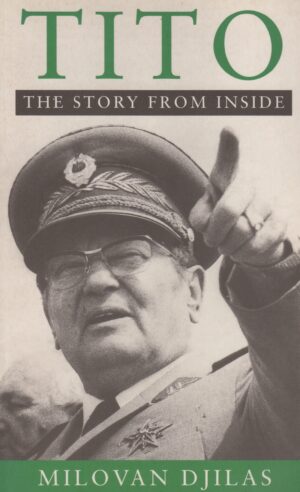
Tito: The Story from Inside by Milovan Djilas (1981. Phoenix. ISBN 1-84212-047-6)
In my continuing research regarding my manuscript, Slovenci (The Slovenians), I picked up my second book by one of Josip Broz’s (Tito’s) understudies. Here, Djilas, writing after his fall from grace (1954) chronicles Yugoslavia’s wartime hero in terms of personality, traits, and actions. Djilas carefully avoids sounding like he has a bone to pick with Tito, despite being removed from office, incarcerated (twice), and reduced to a mere private citizen because of his “anti-Communist”, revisionist views. In essence, the journalist and one-time Partisan ends up in Tito’s doghouse because he believes that more personal freedoms, both individual and economic, need to be incorporated into the Yugoslav political equation, especially after Stalin’s death changes the interplay between the countries.
Tito, who was pragmatic enough not to completely nationalize the entirety of the agricultural output of the united nation, and who, for a time, tolerated Djilas and others gently questioning the direction of the country after its break with Stalin in 1948, finally had enough dissent. His retribution, disguised and carried out by other functionaries, left one of his closest advisors in prison, shamed, and forever marked as unpatriotic. But through it all, the author manages to maintain sufficient distance from his own story to paint a thorough and fascinating portrait of a man whose persona held disparate peoples together until his death.
Djilas is wise enough to understand that, with Tito’s passing, the dream of Yugoslavia would likely come to an end. And it did.
4 stars out of 5.
Peace
Mark


